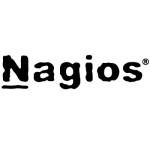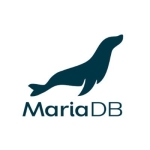What is our primary use case?
Our usage of Influx is very specific. We use it for our casino stack and applications. We use it for monitoring, logging, and metrics and trend analysis for player wagering. It is for casino data. We correlate all that data and generate reports for data warehousing. So, we use it massively in our stack for the casino for a lot of things.
We haven't yet migrated to Influx 2.0. We are still using Influx 1.8 because we have multiple workloads in production. It is going to take some time, and we need to ensure that the latest one is stable and the framework also brings a lot of different languages.
We use it on-premise and in the cloud. We have both. It is a private cloud on AWS.
How has it helped my organization?
In our case, it started with a necessity to fill the gap that we had in monitoring. We had very reactive monitoring without trend analysis and without some advanced features. We were able to implement them by using a time series database. We are able to have all the data from applications, logs, and systems, and we can use a simple query language to correlate all the data and make things happen, especially with monitoring. We could more proactively monitor our systems and our players' trends.
We can integrate it with everything. It has an API. We can put any data there. We are developing apps. We are creating scripts. We are doing lots of things. There are different ways to configure it. As a database, it just has to ensure that data is there, and it is properly stored with the tags, fields, measurement names, and time stamps. The focus is that the data that you put in there is perfectly stored.
What is most valuable?
I use Kapacitor a lot. It is the feature that allows us to create batch jobs and interact with the data that we have. That's the most interesting feature.
The query language is very similar to SQL, which is very useful because most of us have a background in SQL language.
They have the Telegraf agent that gets the data and puts it in Influx. We can also put data into Influx through the API. We are doing a lot of custom-based agents and a lot of scripts that are adding data to Influx. As a time series database, it is very powerful and lightweight. It can deal with heavy workloads very easily. That, for me, is the main advantage of Influx as compared to other databases.
What needs improvement?
Influx has TICK Stack, which contains multiple services and multiple products that work together. InfluxDB is just a time series database, and it works really well. I haven't yet had the time to look into the new stack based on Influx 2.0, but currently, as a time series database, InfluxDB is working the way it is supposed to work.
In terms of features that I would like to see or have, in the community version, some features are not available. I would like to have clustering and authentication in the community version.
I would also like to have high availability features, such as replication, active-active, etc. If they can put an extra plugin or service on top of it, it would be something interesting. I am not sure if they have high availability to make it data center-aware for clustering. For example, I am not sure whether you can have it at different locations with big clusters that are location-aware. Even in their documentation or presentation, they talk too little about high availability and extended clusters with different locations. They might already have it in the newer versions. We have Influx 1.8 in our production in the stage and internal workloads environments.
The other products in their ecosystem, such as Chronograf, can be improved. Chronograf is a dashboarding or visualization layer product, and that, for sure, can be improved.
Buyer's Guide
InfluxDB
December 2025
Learn what your peers think about InfluxDB. Get advice and tips from experienced pros sharing their opinions. Updated: December 2025.
879,455 professionals have used our research since 2012.
For how long have I used the solution?
I have been using this for five years.
What do I think about the stability of the solution?
I really like it. I always recommend the stack to lots of friends I have in other places. It is really good, and it helped us a lot.
What do I think about the scalability of the solution?
We will see scalability with the new version. In terms of its users, everything is automated. So, there are almost zero users. Admins and DevOps are the only ones that go to Influx to manage or implement any kind of tweaks, improvements, or developments, but it touches almost everyone, which includes managers who do reports regarding the business, data warehousing, our 24/7 teams for monitoring, developers, and system administrators. They go to Grafana, and they have all the dashboards for system availability and everything else. It touches almost everyone.
It is being used extensively. As the business grows and we create a new environment, a huge part of the management of that environment comes from Influx. It is one of the primary stacks that we build for monitoring and reporting. Because everything is in Influx, it always comes first.
How are customer service and support?
I did a search and used the community forums and help, but I never had to contact them. Their community is really big, helpful, and active. It is very easy to just go to their support site and search for solutions or ask questions. That's another thing where they are very good.
Which solution did I use previously and why did I switch?
We mainly went from Icinga. It is like Nagios. So, we were using Nagios monitoring, but because the monitoring was so reactive, we wanted something new that could help us with the business requirements. We needed something that could host the metrics and data from multiple sources and can be used to correlate. It was because of the necessity we moved away from Nagios, which is very focused on systems monitoring, to something that uses a time series database and has a simple SQL query language that we can use to correlate data and create trends.
How was the initial setup?
We implemented everything. The setup is straightforward. There is a learning curve, but the setup is very easy. They have repositories for most distributions. You just have to install from a binary, and the entire stack of Influx is up and running. For most operating systems, they already have repositories that allow you to just install it with one command. I would rate it a ten out of ten in terms of ease of setup.
In terms of duration, deploying InfluxDB took minutes. It is like installing an app on your laptop. It is very easy and quick to deploy InfluxDB, but deploying what we have has been an ongoing process for the last five years.
What about the implementation team?
I implemented it myself. In terms of maintenance, it is very lightweight. We just ensure that Influx doesn't get any updates other than the security updates that are always coming from the repository. It is very simple to maintain and update.
Which other solutions did I evaluate?
I went straight to Influx. I came across Influx, and I tried it, tested it, and learned a little bit more about it. I saw that this would do what we needed and meet our requirements.
What other advice do I have?
It depends a lot on what you are going to use it for but just enjoy it. It is very powerful. I would advise learning the TICKscript language. I know that the latest Influx 2.0 is using a different language than Influx SQL, but I would advise learning how to develop using their framework. You will see how powerful it is to use for a big data cluster. So, explore the batch processing and the scripting language that they have in 2.0. We use TICKscript, which is very powerful and allows you to do everything you need.
I would rate it an eight out of ten.
Disclosure: My company does not have a business relationship with this vendor other than being a customer.






















